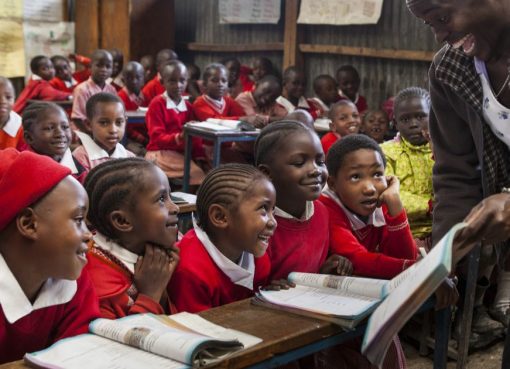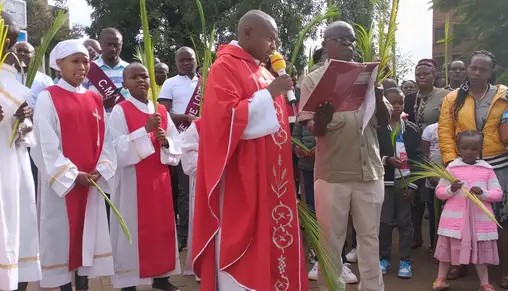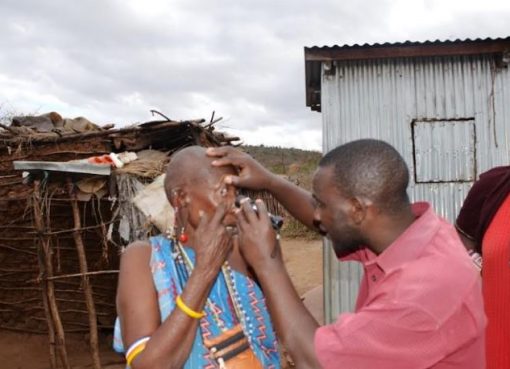Menengai Crater, a popular site for excursions by tourists located 10 kilometers north of Nakuru Town, is one of Kenya’s most intriguing destinations.
It is about 193 kilometres from Nairobi City.
The area is endowed with spectacular scenery, punctuated with local beliefs about spirits freely roaming the locality. Area residents believe it is a haunted place.
It is the second largest surviving volcanic crater in the world, with a surface area of 90 square kilometres after the Ngorongoro Crater in Tanzania.
What immediately captures the visitor’s imagination is the phobia the scenic caldera inspires among locals. Countless myths abound about powerful evil spirits and dark forces that control the otherwise attractive geographical spectacle.
Despite the strange tales of its ‘unseen’ occupants, Menengai Crater has proved its worth. It is one of the greatest attractions and continues to lure local and international tourists yearning for its beautiful scenery.
The number of cars parked at the reserve is a clear testimony of its many visitors. Proprietors of curio shops and fastfood outlets in mabati stalls on the edge of the crater are doing brisk business.
Clearly visible atop the enormous yawn of the crater as it plunges down from the rim, is the green picturesque view of Menengai crater forest on the floor. Smoke spiraling from the bottom is also noticeable. At the top of the crater, one catches a breathtaking view of Nakuru town and its environs.
An enduring legend claims the crater is home to many demons and ghosts and therefore is referred to as ‘Kirima kia Ngoma’, by many locals meaning the place of devils.
Another legend has it that the place was the scene of a violent battle pitting the Laikipia Maasai, who did not recognise the authority of the Laibon, against Ilpurko Maasai. In one battle, it is said, the Ilaikipiak warriors were thrown into the caldera.
Oddly enough, its name Menengai, is said to be a Kikuyu word that means a place of many gods. Even more paradoxical, is that local pilgrims across the country visit the crater to pray and fast for several days, saying they feel very close to God when praying at this site.
The Geothermal Development Company (GDC) has also set up shop on the floor of the crater, where the Menengai Geothermal Project is being developed in four phases, each of approximately 100MW. The estimated potential of the Menengai Geothermal Project is 1600MW.
County Executive Committee Member (CECM) for Trade, Tourism, and Cooperatives, Mr Stephen Kuria, says that Nakuru County welcomes local and international tourists who visit the crater, to also sample the devolved unit’s parks and other attraction sites.
“The crater is believed to be the dwelling place of devils and other dark forces. Local Maasai people prefer not to go near its edge. In our local dialect we refer to it as the place where the dead reside,” explained Linus Ole Lempapa, a 63-year-old herder.
The crater, he says, has its fair share of sad stories, having ‘witnessed’ scores of suicide deaths. A number of victims put their lives to an end on the floor of the crater, alongside the emotional turmoil they were going through.
A couple of years ago, a Catholic Priest (name withheld) drove and plunged his car into the crater floor. His badly dismembered remains were recovered four days later.
“The restless spirits of the dead are responsible for starting mysterious fires that break out within the Menengai Crater forest. In most cases causes of these infernos that occur annually is not known even by government authorities,” said Lempapa.
Several other strange things are said to happen in the crater, such as people disappearing without a trace, with others losing directions for hours or days on end only to be found by their relatives wandering around in a trance. There are also widespread allegations of a ‘flying umbrella’ that normally appears whenever it rains.
Other residents claim that dark forces capture people and animals and hide them in caves for eternity.
Raphael Ndung’u, a retired driver with one of the state agencies claims that people have stopped planting crops on the Southern end of the crater as the produce eventually ends up being harvested by ghosts.
“In the 1950s, unknown creatures used to practice large-scale agriculture on the floor of the crater. Even today there is still small-scale farming that is practiced by the ‘ghosts’.
At night in those early years, it is alleged, a visitor could witness crops on the crater floor being harvested and before long, the flurry of activities was over and the land would revert back to its former state of grassland. The invisible farmers would also similarly disappear,” says Ndungu.
At the top, which stands at 2,300 meters above sea level, there is a tall signpost erected by the Rotary Club showing directions and distances in kilometers to several places in the world such as Rome 5997, Tokyo 10,988, Mombasa 579, Cape Town 4,186, London 6,924, New York 12,360 and Evanston 13,687.
The signage also indicates that the area of the crater is 90 square kilometers with a maximum depth of 485 meters.
Trade and Tourism CECM, Kuria, says Menengai crater and the parks in the County are home to wildlife and beautiful sceneries that will give visitors unforgettable experiences.
“We have the wildlife at Menengai Crater forest, Lake Nakuru National Park, Mt. Longonot and Hells Gate. We also have Lake Naivasha and Lake Elementaita that have something to offer to our guests. We want to invite visitors, locally and abroad to visit Nakuru for the ultimate safari experience,” he says.
Various birds of rare species and several dik-dik, duiker, hyena, baboons and cats can be spotted at the crater.
Menengai Crater, a large caldera believed to have formed by volcanic activity millions of years ago, also hosts a wide array of activities including hiking, trekking, biking, camping and picnicking at strategic campsites.
Some pilgrims take shelter in Menengai Crater caves for months believing they are closer to God.
Rare bird species, hyenas, snakes, baboons and antelopes are resident here.
It also offers striking and clear picturesque views of Nakuru Town, Lake Nakuru and Lake Bogoria.
Legend also has it that the steam and gases emitted from the crater, are souls of the dead seeking to find their way to heaven. In fact, another account indicates that the crater derived its names from Maa word ‘Menengai’ meaning the dead.
Rumour has it that in the late 1950s and 1960s, the demons used to farm on a fertile piece of land situated on the floor of the crater. They ploughed and harrowed the land using tractors, planted wheat and harvested all within an hour.
By Jane Ngugi




